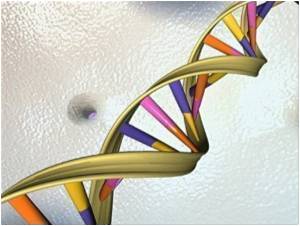Researchers have described a novel analytical method that can organize large amounts of genetic data.
Researchers have described a novel analytical method that can organize large amounts of genetic data. The study published in the journal BMC Medical Genomics. The analytical approach is based on the multiplicity concept. The method allows researchers to create three-dimensional models revealing previously unknown relationships among the genes involved with different types of cancer.
"This technique shows similar genetic profiles for different types of cancers, which could open the door to trials of already approved drugs for additional cancers," said Lewis Frey, PhD, assistant professor in the Department of Biomedical Informatics and an HCI investigator. "It can bring to light previously unknown genetic connections between different cancers, helping focus the search for cancer-causing genetic mutations. It makes whole genome data more usable for both clinical and laboratory researchers."
Stephen R. Piccolo, Ph.D., a postdoctoral research associate in the Department of Biomedical Informatics at the University of Utah, and Mary E. Edgerton, M.D., Ph.D., associate professor in the Department of Pathology at MD Anderson Cancer Center in Houston, Texas, are co-authors of the article. The study was funded in part by an Incentive Seed Grant from the University of Utah, and a National Library of Medicine training grant.
Source-Eurekalert















